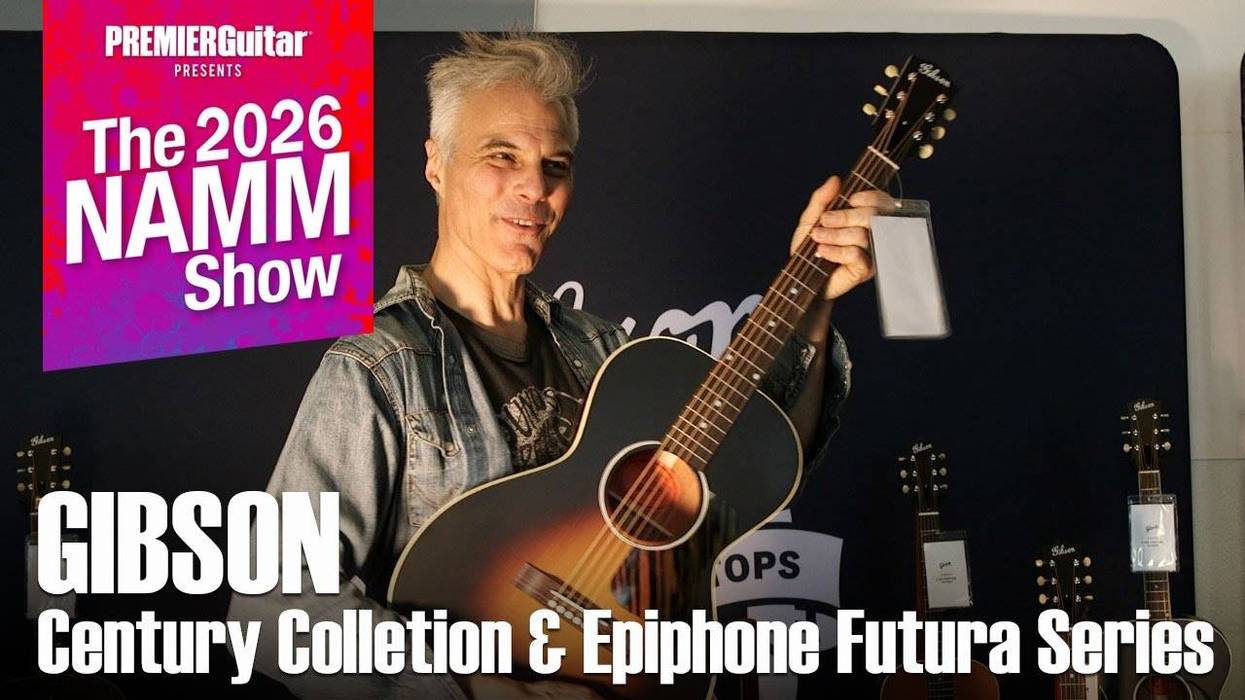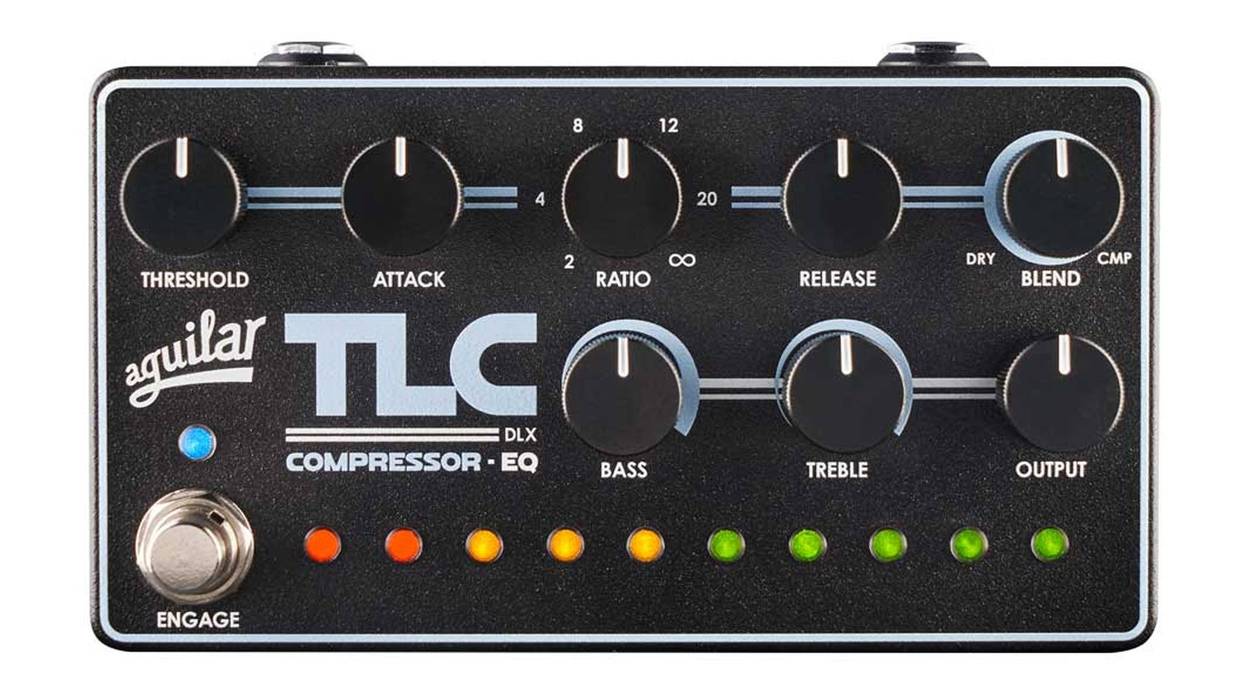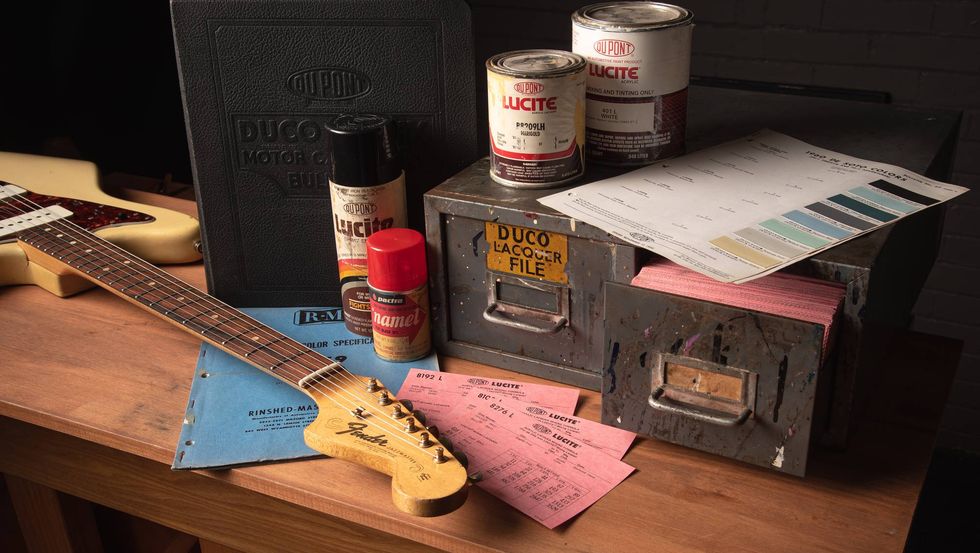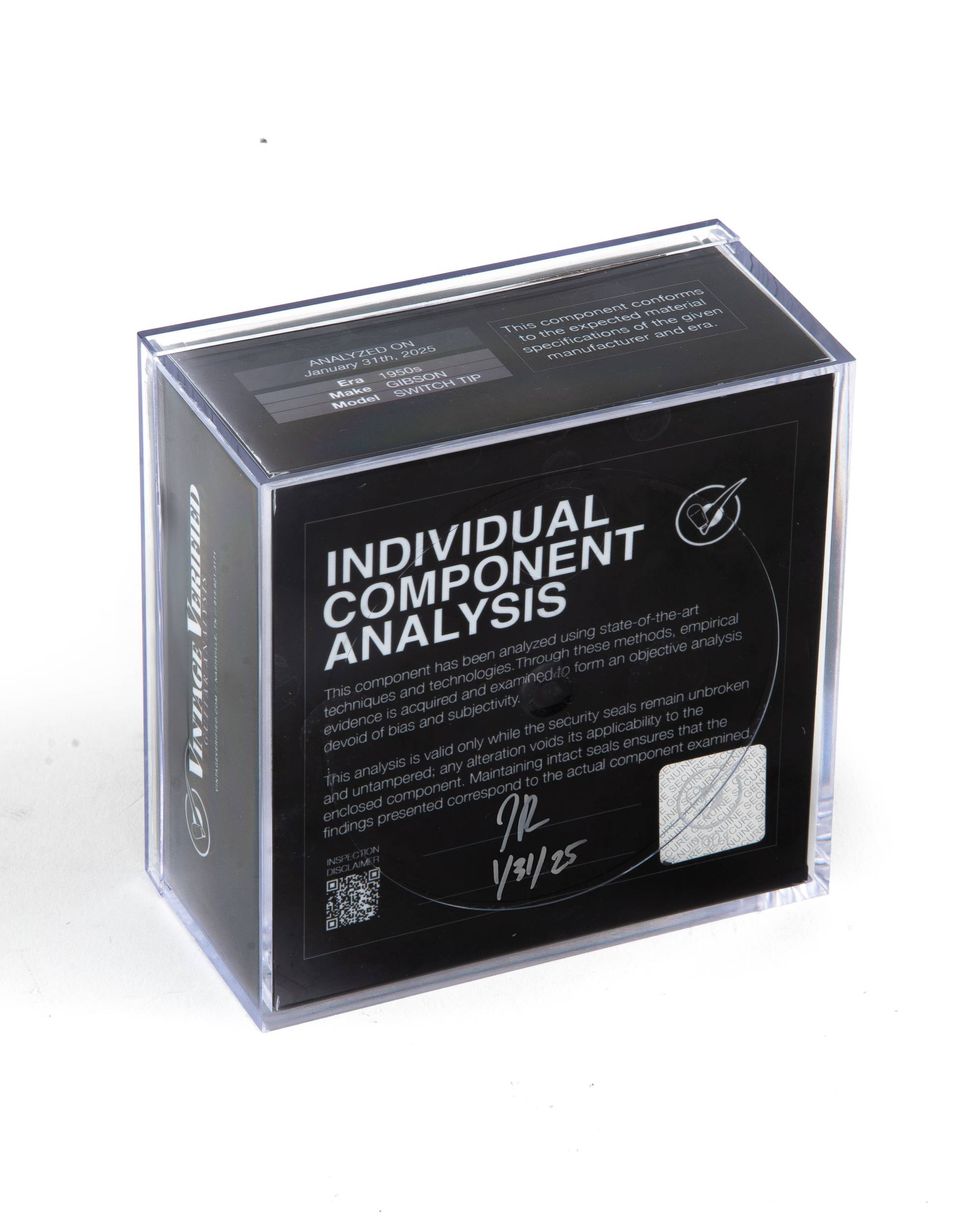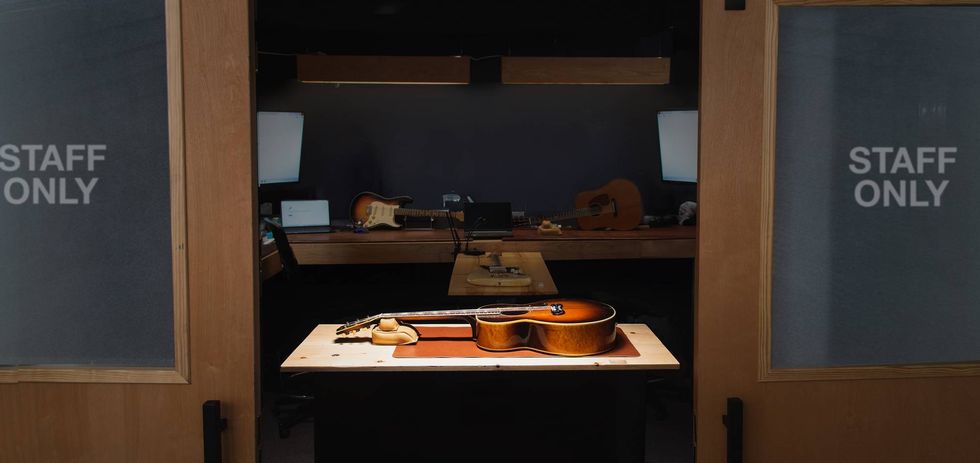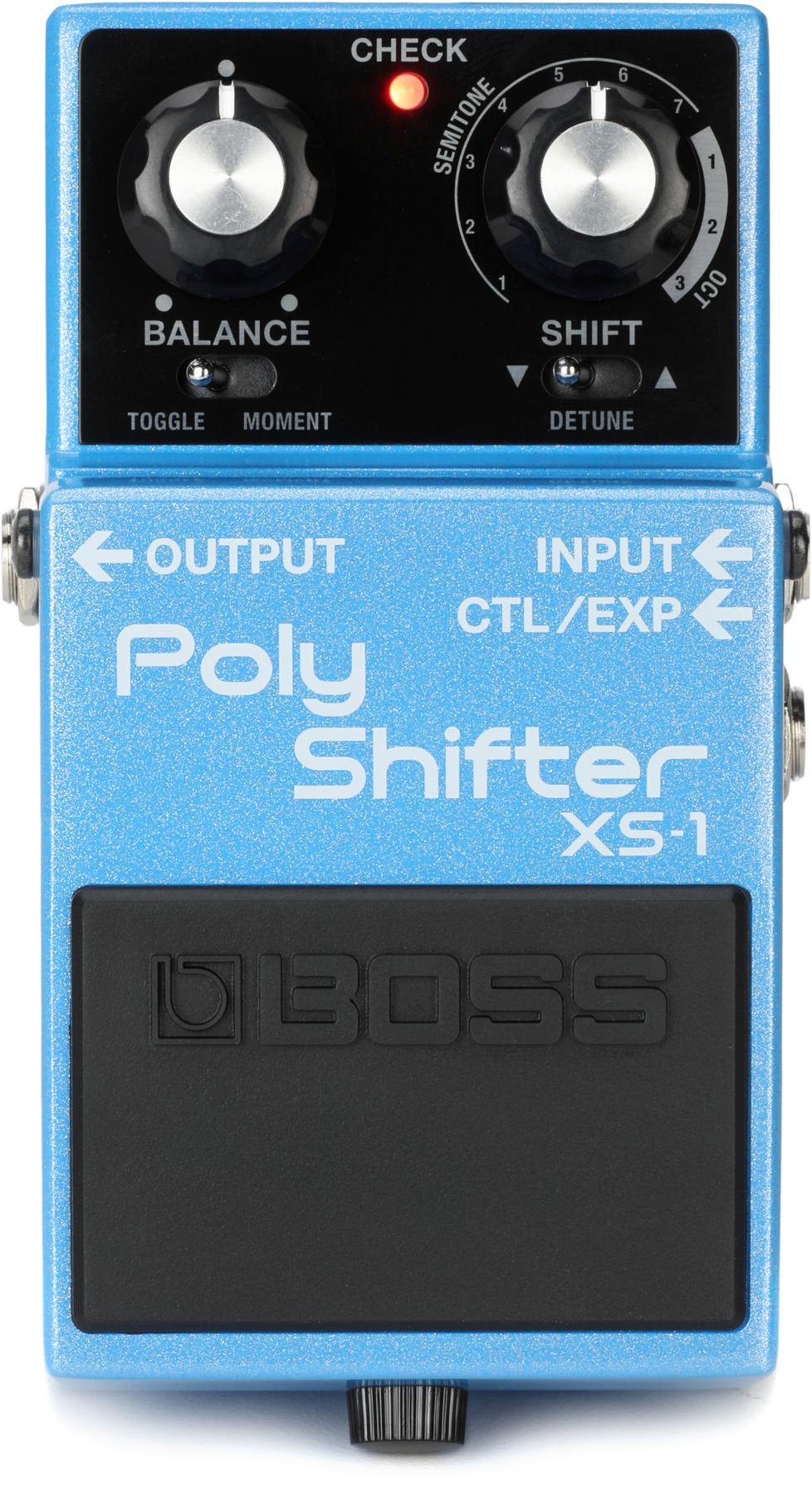We guitarists can get pretty low. (Should I tell the story about the time I played a pizza parlor in Willimantic, Connecticut?) But starting in the ’90s, blooming re-interest in the baritone guitar made that an emotionally healthier proposition. By the time we were rolling into the oughts, it seemed like everybody—from Korn to Dave Matthews—had baris in their hands.
Baritones produce heavy, dark, dreamy, twangy tones and have done so since the late 1950s when Duane Eddy grabbed a Dano example and cut “Rebel Walk”—with the Beach Boys (“Dance, Dance, Dance”), spaghetti western soundtrack genius Ennio Morricone, and Glenn Campbell (“Wichita Lineman”) on his tail. The current baritone guitar renaissance sparked in the late 1980s, when metal outfits like Cannibal Corpse and Carcass, and alt-rockers like Soundgarden and Deftones, began using them to add growl, depth, and mystery to their arsenals of tone.
Baris Conquer the World
Today, baritone guitars are no longer novel. Open the door to almost any bar, arena, or studio and there’s a good chance you’ll see one being brandished—especially by club bands covering modern metal hit-makers, from Metallica to Staind. And that’s where PRS entered the game. Although the Maryland-based guitar maker had built custom one-offs for several artists before, in 2008 it began production of the Mike Mushok SE Baritone, a signature model bearing the name of Staind’s lead guitarist. It had a solid mahogany slab body and humbuckers. When that guitar’s run ended in 2014, PRS wanted to continue with baritones, of course, and the result is the humbucker-rigged SE 277 and its cousin, the semihollow SE 277, which comes with soapbar single-coils. Both guitars have a 27.7” neck scale length, providing the instrument with its designation.
PRS chose the 27.7” scale for the popular B-to-B baritone tuning (B-E–A–D–F#–B), leaving C-based tuning and other lower tunings to instruments with longer scales. B-to-B and the 27.7” scale is welcoming to guitarists who have little experience with baritones, since the string size—the SE 277 came gauged .014–.068—and tension isn’t radically different, and it’s easy to do the math with the usual chord shapes and positions.
Ratings
Pros:
Versatile low-output humbuckers. Easy to play. Comfortable weight. High-quality build.
Cons:
Pricier than some baritones.
Tones:
Playability:
Build/Design:
Value:

Street:
$749
Paul Reed Smith SE 277 Baritone
prsguitars.com
Lover, and a Biter
While the Mushok model was a rock machine, the SE 277 can do that and more in all three of its pickup settings. Running through a Fender DeVille, a Mesa/Boogie Dual Rectifier with an Eminence 50-watt speaker cab, and a custom-built Sandora 18-watter with an Eminence 50, the test model—a tobacco sunburst-finished solidbody—was superbly versatile and cut crisply through sonic mayhem with its bridge pickup.
This do-it-all bari adapted to effects, from radical modulation to demonic overdrive, like a hero, but stayed warm and smooth when plugged straight into the clean-set amps. New-generation, lower-output PRS Tone Furnace humbuckers, which are especially nurturing to mids, made the SE 277 more versatile than the company’s earlier production-model baritone. Players outside of the heavy rock realm took to requesting those guitars with a coil tap, with a default setting wired to single-coil. A tone pot had to be pulled up to activate humbucking mode. But the SE 277 is a humbucking six-string for all seasons, and its standard three-way selector switch and single tone pot unleash a bevy of sounds.
The Usual, Please
The build of any instrument from Paul Reed Smith hits a high bar for quality and playability, and the SE 277 falls right in line. Its 22 frets are smooth and comfortable for fast runs and bending, and beautifully tapered to the edges of the neck, which PRS describes as “wide fat,” but has a classic, smooth-tapered late ’60s Gibson feel with a bit more broadness to the fretboard at it approaches the guitar’s maple-top-and-mahogany-back body. The SE 277 wears comfortably around the human neck—not too heavy, at less than 7 pounds—and the guitar’s maple neck with rosewood top balances well, avoiding the downward tilt of some baritones. PRS’s usual bird inlays decorated the test model’s fretboard, and the tuners were sturdy and easy to turn. The guitar arrived nearly in tune in a gig bag tucked inside a cardboard shipping box, and stayed that way even when I insisted on playing in open-D and E derived tunings. (Slide baritone, anyone?)
The Verdict
Try as I might, I couldn’t find a dang thing wrong or even slightly unsatisfying with the PRS SE 277. It’s comfortable, fun, and easy to play; has a wide range of versatile, simple-to-control tones; and proved a gleeful partner in sonic mayhem as well as a suave traditionalist. And hey, it’s really nice looking, too. The SE 277 is more expensive than some common baritone model guitars at a $749 street price, but there’s a lot of quality, versatility and charm—sonic and otherwise—attached to that sticker.
Watch the Review Demo:













